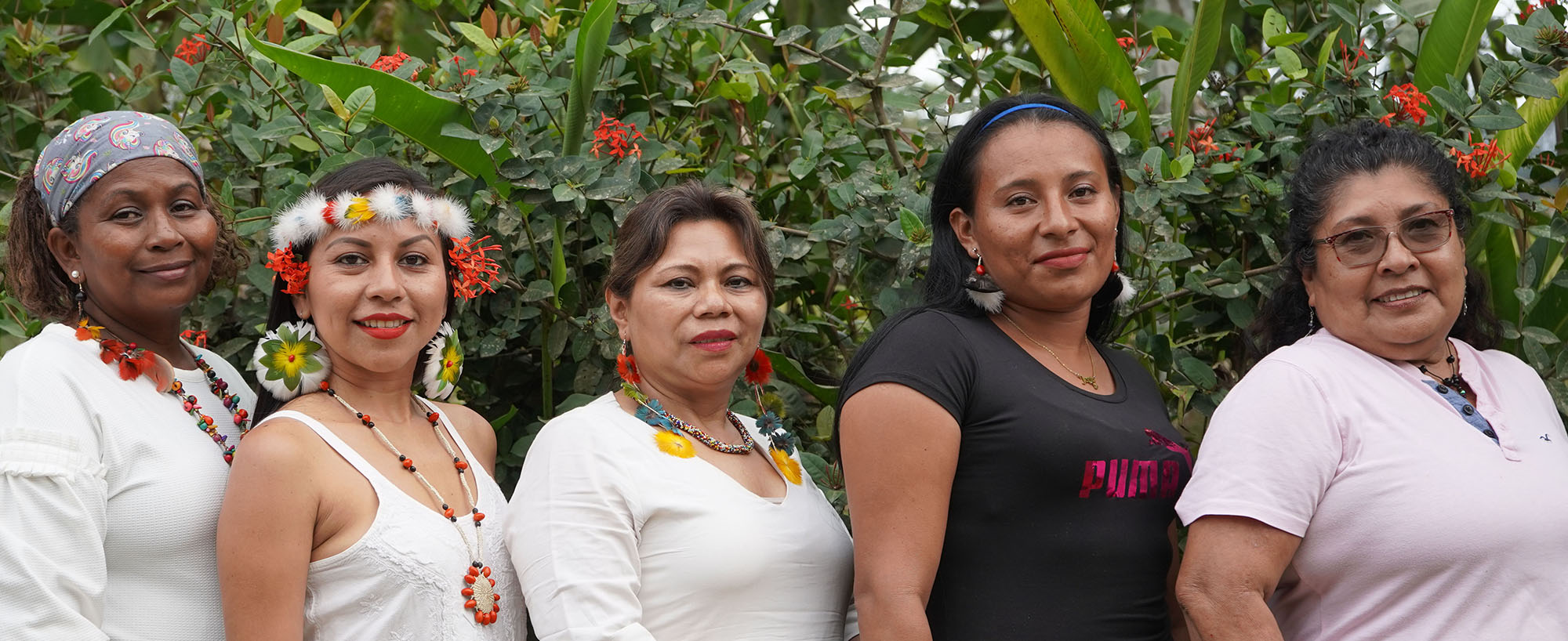Talamanca, Costa Rica — Leaders of the indigenous peoples of Mesoamerica, the Amazon Basin and Brazil met to discuss the effects of the climate crisis in their territories and to demand spaces in international decision-making platforms on climate change.
The agreements of the leaders take into consideration the effects suffered by climate change from their position as protectors of life, biodiversity, forests and water; as well as the immense contributions they make to mitigation and adaptation at the local, regional, national and global levels.
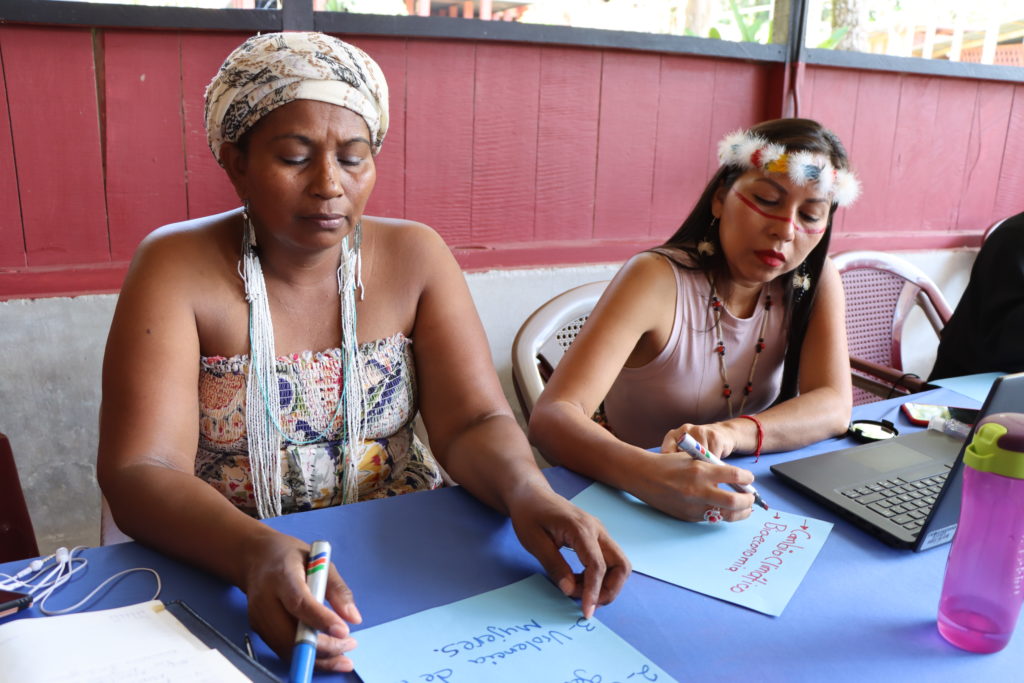
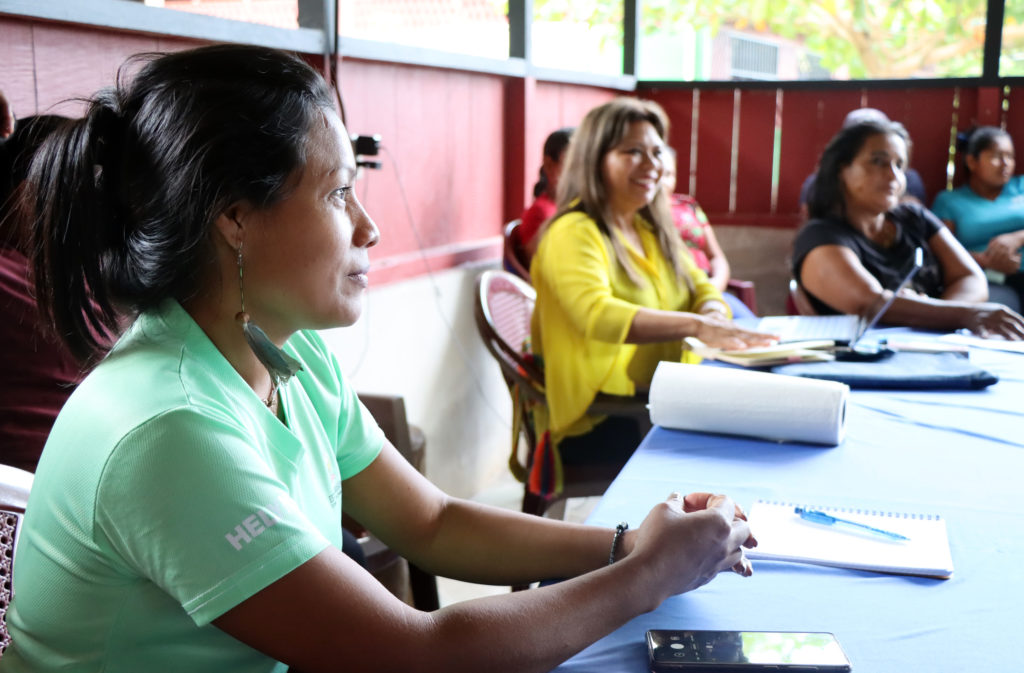
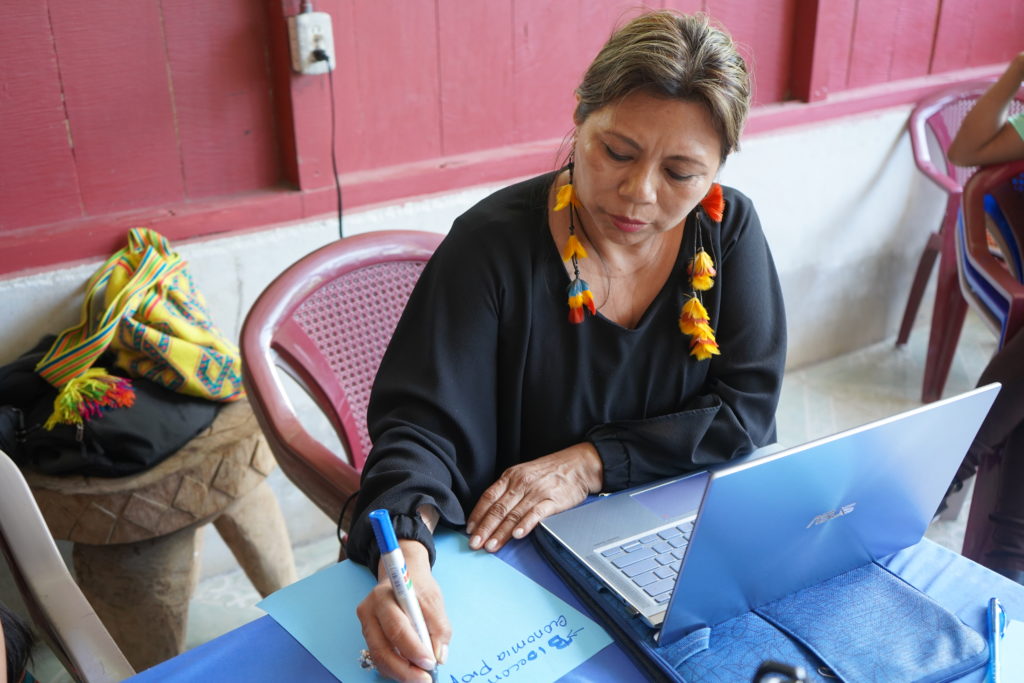
As indigenous and territorial women, responsible for planting and crops, and as providers of food and water in our communities, we are the first to be affected by the impacts of extractivist activities, natural disasters, and all the environmental imbalances caused by climate change, which impact our natural resources, our livelihoods and our bodies
Agreements of the Women’s Meeting of the Global Alliance of Territorial Communities
The meeting was organized with the aim of building, collectively and horizontally, a global space for international advocacy for indigenous women and women from territorial communities.
«The meeting of women leaders from different organizations that form the Global Alliance is important because we have to unify voices, because we must have a common agenda to maintain qualified participation in decision-making spaces about our forests, about our territories and about our lives» – Fany Kuiru, from the Uitoto people of the Colombian Amazon, lawyer and Master in political and international studies
Participation and political influence
To create a real and permanent front against the climate crisis, the vision of women territorial leaders must be taken into account in decision-making at the local, national and global levels.
“When there is this drastic climate change currently in this cycle, it directly affects us women, because we are cultivating, we are the ones who take care of the land, the water, the rivers, the mountains, the animals. It is important that indigenous women are in organizations at a political level, where we can have influence. It is important to occupy these positions of incidence in the organizations, because there must be a space for women, for our voice at the national, local and international levels. The voice of women is important because we are the first ones working in our territories” – Nemo Andy Guiquita, from the Waorani people and leader of the Women and Health areas of the Confederation of Indigenous Nationalities of the Ecuadorian Amazon (CONFENIAE)
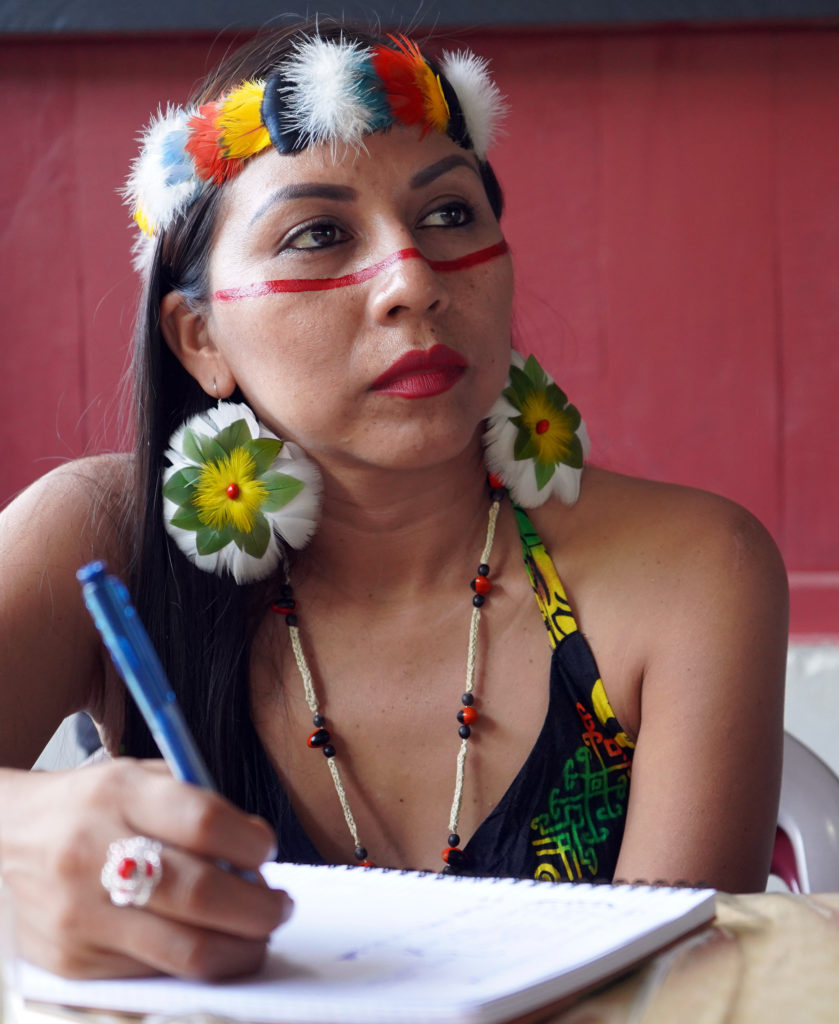
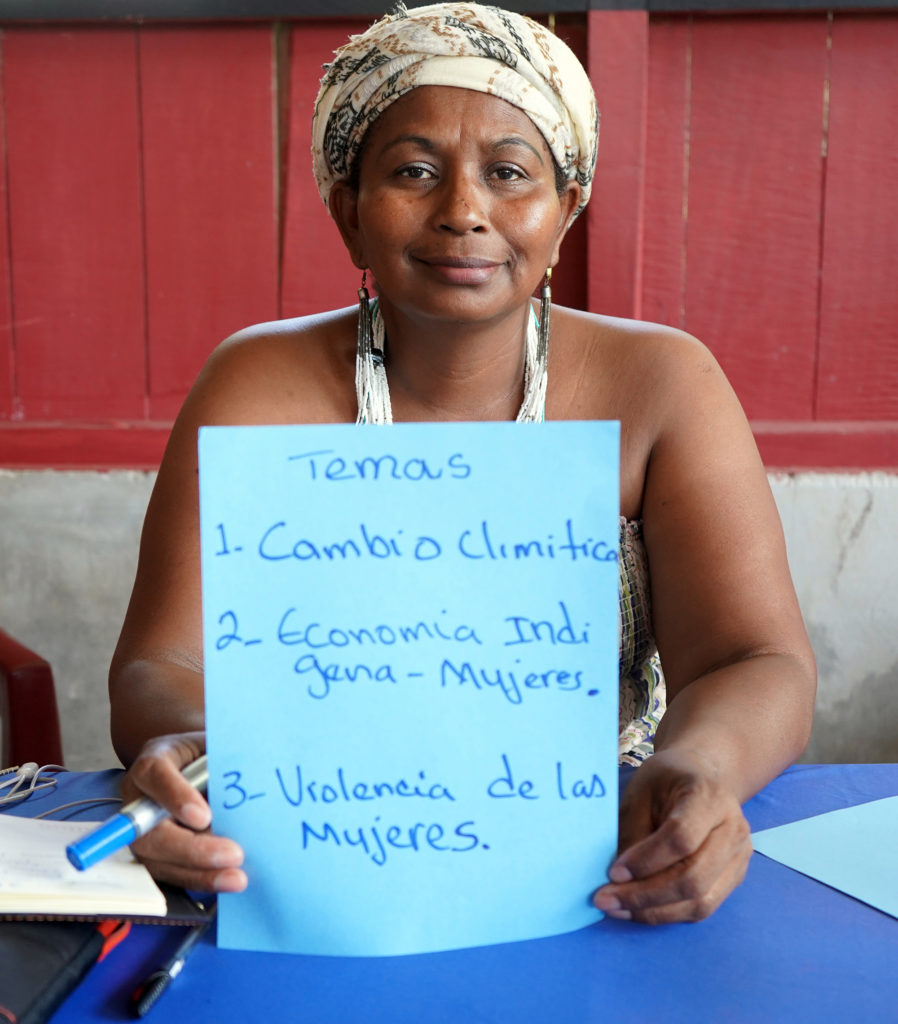
Access to climate funds
Strengthening initiatives led by community and indigenous women is a solution that generates real impacts on food security, adaptation & mitigation to climate change and the protection of forests.
«We, women, are weavers of knowledge. We play a very important role within the community, such as the conservation of our mother tongue, traditional medicine, forest protection, food, children’s education and we are also good at managing the economy. It is important that funding reaches women-led organizations, because we need to carry out projects that can benefit many more women” – Cándida Dereck, delegate of the Coordination of Territorial Women Leaders (CMLT)
In the conclusions of the planning meeting, the leaders called for action so that global climate funds allocate resources directly to initiatives in the territory.
We demand that funds be channeled to guarantee the food sovereignty and economic autonomy of indigenous and territorial women, through the strengthening of economic enterprises based on the principles of the bioeconomy, respectful of our worldviews and our traditional management of natural resources. Without economic autonomy we can neither exercise our rights, nor sustain our role as guardians and restorers of forests and land
Agreements of the Women’s Meeting of the Global Alliance of Territorial Communities
Gathered from march 26 to 28 in the territory of the Bribri and Cabécar peoples in Talamanca, Costa Rica, the leaders discussed their role at the front line of conservation. Among the demands agreed upon at the meeting are the need for access to information and compensation for loss and damage caused by the effects of climate change.
The meeting brought together representatives of the Coordinator of Women Territorial Leaders of Mesoamerica (CMLT), the Articulation of Indigenous Women Warriors of the Ancestrality (ANMIGA) from Brazil and representatives of the Coordinator of Indigenous Organizations of the Amazon Basin (COICA), the Mesoamerican Alliance of Peoples and Forests (AMPB) and the Articulation of Indigenous Peoples of Brazil (APIB).
The joint construction spaces hosted by the Global Alliance of Territorial Communities include the development of an agenda of the indigenous and community women of the forests, restorers of the land and protectors of the ancestral cultures.
This meeting was facilitated by The Invisible Thread (TINTA) for the Global Alliance of Territorial Communities (GATC) a coalition of indigenous and local communities from the Amazon Basin, Mesoamerica, Brazil, Indonesia and Central Africa, who together protect more than 958 million hectares of tropical forests.

